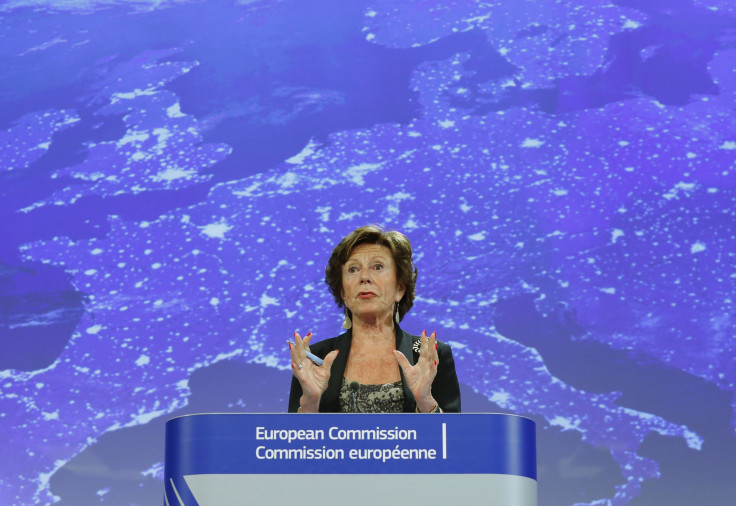European Union Votes To End Roaming Charges And Protect Net Neutrality

On Thursday, the European Parliament voted to end mobile roaming charges as part of a larger effort to expand consumer rights and improve the telecom market.
During a parliament session at Brussels, Belgium, European lawmakers voted for the “Connected Continent” regulation, which will phase out roaming charges across all of the European Union’s 28 member states.
"This vote is the EU delivering for citizens. This is what the EU is all about -- getting rid of barriers to make life easier and less expensive,” European Commission vice president Neelie Kroes said. “Nearly all of us depend on mobile and internet connections as part of our daily lives. We should know what we are buying, we should not be ripped-off and we should have the opportunity to change our mind. Companies should have the chance to serve all of us, and this regulation makes it easier for them to do that. It’s win-win.”
Individual European Union member states are now expected to review the regulation before a final agreement on the regulation is made by the end of 2014.
Final vote in EU Parliament was 543 in favour, 25 against on package to end #roaming fees, bring in #netneutrality , cut red tape
— Ryan Heath (@RyanHeathEU) April 3, 2014In addition to the provisions which will end roaming charges across the European Union, the “Connected Continent” regulation also adds “net neutrality” provisions which aim to prevent blocking or degrading content transmitted over the Internet and provisions to make it easier for customers to switch Internet service providers (ISPs).
While the European Union parliament celebrated the vote, the European Telecommunications Network Operators’ Association (ETNO), a trade group representing Orange, Deutsche Telekom, Telecoms Italia and Telefonica criticized the move.
“Today’s vote risks derailing the original objectives of the Connected Continent Regulation, namely a strong European digital industry igniting growth and jobs creation. We are confident that the upcoming work of the EU decision makers will acknowledge such risk and will embrace the spirit of the Commission’s original proposal, confirming that the EU seeks solutions for growth, and not populist measures,” ETNO Chairman Luigi Gambardella said.
The “Connected Continent” regulation was first proposed in September 2013 and is expected to be fully enacted by the end of 2015.
© Copyright IBTimes 2024. All rights reserved.












